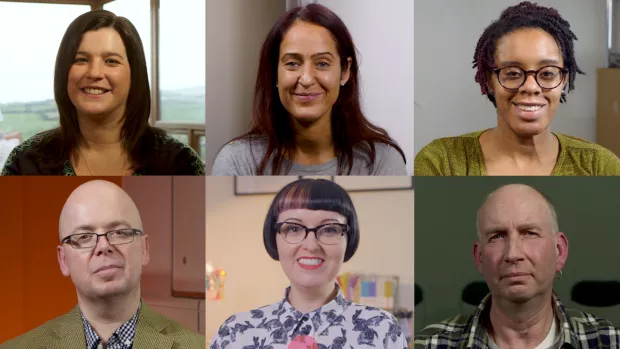
My tips for dealing with 'Dr Google'
Let’s admit it, we’ve all done it - an itch or tingle appears and we jump straight to the keyboard to check if others have felt this. What does it mean? Am I normal?
Particularly when I first got diagnosed with MS, this became a curse that ruled me, with Google searches in the middle of the night and a quick look on my lunch break.
Sometimes it’s hard to get the immediate answers we want from our GPs or nurses and other times there are simply no answers. As I’m learning over the years, everyone’s MS is different. Often an internet search can fill me with negativity and unnecessary worry or fear.
Miracles and horror stories
The internet is a vast space where anyone can put anything out there. Opinions can pose as fact. There are miraculous tales of recovery and the worst of horror stories. I found it hard to get my head round what was true and what was not, and it’s really hard not to take a look when you’re trying to make a decision about a treatment or understand your symptoms.
The hardest time for me was when I was trying to see what the consensus was for Lemtrada (Alemtuzumab). It was a new drug at the time and I wanted to understand how I would find the experience of taking the infusion. There weren’t too many medical sources other than daunting journal articles and I started to come across Facebook groups filled with others like me sharing their experience.
Highs and lows
Initially, I thought this was amazing. People were talking about something that was a major life decision for me. But as I read on, the claims being made raised my hopes so high, and scared me deeply. Stories of a definite cure, a terrible relapse, a permanent rash and so much more. What was the truth? Were all these claims relevant to me? And I realised, it’s about picking and choosing where you get your information, and deciding what you want to invest your time, faith and hopes in.
Top tips for consulting with Dr Google
My top three tips for understanding your condition online are:
- What is the source you are looking at? Is it reliable information shared by professionals or an established MS organisation like the MS Society or MS Trust, or is it people sharing their personal experience? Ask yourself if that makes it fact or personal opinion and consider it carefully. [You may be interested in our page What is good research?]
- Remember not everything you read will apply to you or will happen to you. Everyone is different.
- You will often see the extremes online. It’s an easy medium to boast on, as well as to vent negative feelings on. Try not to get caught up in everything you read.
Taking it easy
Just remember to take it easy online. There is a lot out there and it can be overwhelming. What you read doesn’t change your condition, nor does it give you tools to self-diagnose. If you are worried, consult a medical professional. And remember opinions are not facts, and we all perceive things differently.
About Noor You can follow Noor’s mindfulness journey on Instagram @trailoflight, and her blog at msfistfight.blogspot.com. She is always ready for the next adventure, eating her way around new places and loves to get in touch with her body through yoga and exercise.



